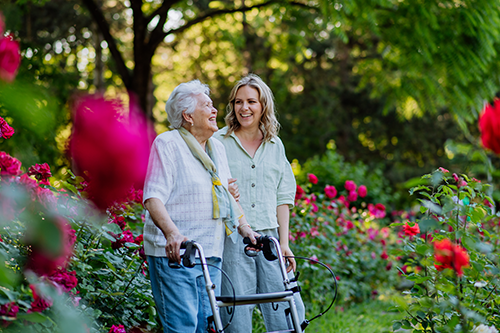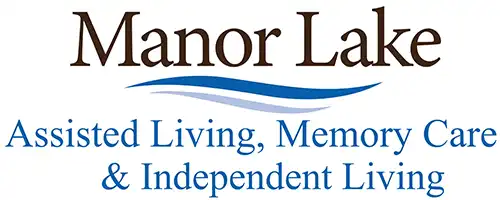
Welcome back to our Manor Lake Athens assisted living and memory care blog where we strive to pass along our love and professional knowledge to all of you caring for special needs loved ones at home whether you provide senior assisted living services or memory care services to your loved one. Today’s blog topic is a focus upon those of you lovingly caring for a loved one recently diagnosed with Alzheimer’s or other dementia-related condition.
When a loved one is diagnosed with dementia or Alzheimer’s disease, there is a wave of emotions they experience, but grief is often front and center. Grief for the life they may have lived without the disease, anticipatory grief, sadness, anxiety and much more. Regardless of your role in the caregiving journey, your loved one can use support and guidance through these feelings, and there are many ways you can help.
Caregiver Feelings Following a Diagnosis
One of the initial reactions of any caregiver is questioning what to do after a dementia diagnosis. To be sure, a diagnosis of dementia or Alzheimer’s is serious, and your loved one may experience a full range of emotions. If your loved one is early in their journey, grief is a common reaction. Plus, there may be anxiety and distress with the acknowledgment of symptoms, learning of the disease progression, and anticipating what may happen to them in the future (known as anticipatory grief) is common.
As early as possible after diagnosis, have open and honest conversations with your loved one about their emotions and how they can affect their mental and physical health. The most important thing to emphasize with your loved one is that these are normal feelings and very common. It’s vital to validate their feelings and affirm they are not alone.
Coping After a Loved One’s Diagnosis
First, always remember that your loved one is a person – the person you know and love. But now, they are a person living with dementia or Alzheimer’s and one who needs a caring advocate.
As such, talking with your loved one’s healthcare team, if they’re open to including you, can help lay a foundation for truly understanding the disease and its diagnosis. Finding reputable sources to learn about the stages of Alzheimer’s and dementia also can help reduce early anxiety and depression.
Education goes a long way in breaking the stigma around dementia and Alzheimer’s diagnoses. For example, people with a diagnosis of Alzheimer’s or dementia may see their friends and family members withdraw due to their own misunderstanding of the conditions and out of fear of the changes they may see. When loved ones have the facts, assumptions and unfounded fears may lessen.
In addition to being there to support your loved ones through every part of their journey, work with them to find communities and support groups to help provide encouragement and comfort. In fact, these communities can be excellent support for dementia caregivers as well.
How Caregivers Can Plan for the Future
When you’re familiar with the stages of dementia and Alzheimer’s, it can be easier for you and your loved one to recognize changes and address them early with medical and support teams. After a diagnosis of dementia, plan to assist your loved one as they progress. From simple steps like setting up automatic bill pay to more involved processes such as putting financial and legal affairs in order, lower stress by preparing and planning.
If your loved one’s condition progresses to the point where they need elevated levels of professional care such as administration of medication, various therapies, wound care and assistance eating or drinking, consider your professional memory care options like ours here at Manor Lake.
While your role as a caregiver is vital, it’s also crucial that you care for yourself, helping to prevent burnout and overwhelming emotional stress. Just as your loved one should rely on resources such as support groups to find supportive communities, you should consider those tools for yourself as well.
If providing day-to-day care, know the types of resources available to help keep your loved one safe while giving you a break – meal delivery, visiting nurses and more. If providing care for your loved one is resulting in you neglecting your own basic health, don’t be embarrassed to ask for help. Eating nourishing foods, getting daily exercise, and finding some time for yourself are basic needs and caregiver respite is imperative.
Wherever you and your loved one are on the journey from dementia or Alzheimer’s diagnosis through the progression of the condition, stay educated, do your best to provide care and support for your loved one and never forget to care for yourself. Contact us for more information.
If you are a full-time home caregiver for your loved one, we want you to know that help for you is just around the corner, and we invite you to reach out to us anytime. If your senior loved one is receiving care in our Manor Lake Athens Assisted Living and Memory Care community in Athens, GA, you already know that we are professionally trained and lovingly apply a wide range of proven techniques that maximize comfort to your memory challenged loved one. You can learn a lot from us….and we from you. May peace and strength be with you all.

